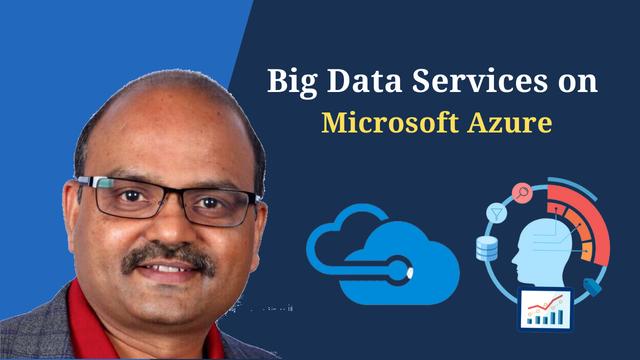Big Data Hadoop and Spark Developer in Amazon Elastic MapReduce
The Big Data Hadoop and Spark Developer course has been designed to impart an in-depth knowledge of Big Data processing using Hadoop and Spark. The course is packed with real-life projects and case studies focused on AWS and Amazon EMR.
Overview
Skills you'll gain
What you'll learn
- Describe the different main Hadoop ecosystems such as Hadoop 3, Yarn, Pig, and Hive.
- Explain the functionality and architecture of the Hadoop Distributed File System (HDFS) and YARN resource management.
- Explain how Map Reduce works and how it is implemented in the Hadoop environment.
- Explain what the file formats used in BIg Data – Avro, Parquet, and Orc; and how to use them in the EMR environment.
- Explain the difference between traditional RDBMS and Hive tables.
- Explain the architecture and functionality of Spark
- Use resilient distribution datasets (RDD) for data processing in Spark.
- Implement and build Spark applications.
- Write a basic functional code in Scala to run a Spark application.
- Explain parallel processing in Spark and Spark optimization using Catalyst and Tungsten.
- Use Spark SQL, creating, transforming, and querying Data frames.
- Explain the differences and use cases for Spark RDDs, DataFrames, and DataSets.
- Create and deploy AWS EC2 instances, EBS, and S3 storage volumes.
- Explain the pricing models for AWS storage and compute resources.
- Configure and deploy an EMR Cluster in AWS.
- Run Spark and Map Reduce applications in batch and interactive mode on EMR.
- Create and use EMR notebooks.
- Explain the differences between IaaS and PaaS resources in AWS
- Create and manage a personal AWS account
Who Should Attend
Prerequisites
- Data Analysts
- Data Engineers
- Data Scientists
- Database Architects
- Database Administrators
- A basic level of conceptual understanding of data warehouses is assumed, as well as an awareness of the core functions of SQL.
Chapters
Explore a structured set of chapters designed to build your skills step by step, with practical examples and hands-on applications.
Meet your instructors

Rod Davison
View my channelFrequently Asked Questions
How much do the courses at Starweaver cost?
We offer flexible payment options to make learning accessible for everyone. With our Pay-As-You-Go plan, you can pay for each course individually. Alternatively, our Subscription-Based plan provides you with unlimited access to all courses for a monthly or yearly fee.
Do you offer any certifications upon completion of a course at Starweaver?
Yes, we do offer a certification upon completion of our course to showcase your newly acquired skills and expertise.
Does Starweaver offer any free courses or trials?
No, we don't offer any free courses, but we do offer 5-day trial only on our subscriptions-based plans.
Are Starweaver's courses designed for beginners or advanced students?
Our course is designed with three levels to cater to your learning needs - Core, Intermediate, and Advanced. You can choose the level that best suits your knowledge and skillset to enhance your learning experience.
What payment options are available for Starweaver courses?
We accept various payment methods such as major credit cards, PayPal, wire transfer, and company purchase orders. For more information related to payments contact customer support.
Do you offer refunds?
Yes, we do offer a 100% refund guarantee for our courses within a specified time frame. If you are not satisfied with the course, contact our customer support team to request a refund with your order details. Some restrictions may apply.

